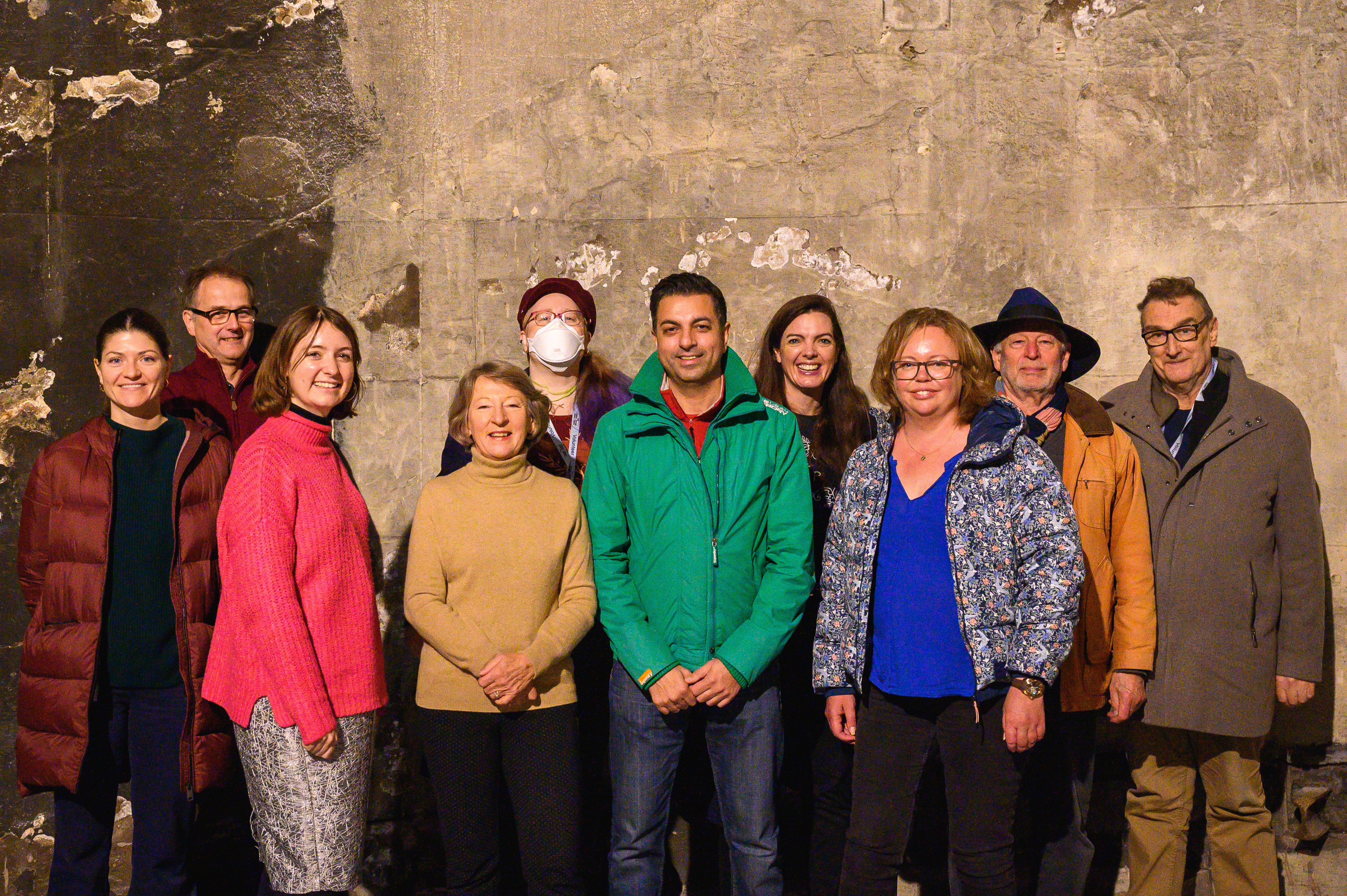Katherine McAlpine, Director of Brunel Museum shares why paying the museums history highlights the improtance of paying a real Living Wage today, especially during the cost-of-living crisis.
We’re really proud to be a Living Wage Employer at the Brunel Museum. The Brunel Museum celebrated the story of the building of the Thames Tunnel – the first tunnel under a river anywhere in the world. It was conceived by Marc Brunel, who pioneered literal groundbreaking tunnelling techniques. He was supported by his son Isambard Kingdom Brunel in his first engineering role, but the work to complete the tunnel between Wapping and Rotherhithe, where the Museum is today, was undertaken by a mixture of bricklayers, miners and other labourers.
The tunnelling techniques were brand new and everyone involved in the project had to learn on the job. Work began in March 1825, with tunnelling commencing in June the same year. By January 1927, in a bid to save money, it was suggested they reduce the workers pay as they had learnt the new skills they needed for the role.
Workers only learnt of the deduction when they received their pay that day. Bricklayers refused to accept it and a representative of the workers went to meet Isambard Kingdom Brunel for an explanation.
On the Monday, the bricklayers went on strike, refusing to work at the reduced rate. Isambard decided to resist their demands and sent a representative to try to recruit more bricklayers. This was not successful, and the strike continued through the night shift. That evening Isambard agreed to take on some workers at 5s a shift for the first week and then at the lower rate of 4s 6d.
By Tuesday morning it appeared that there would now be sufficient new bricklayers, accepting the lower rate, to return to full working and by that evening the strike was over. However, the workforce was now disgruntled, and drunkenness and poor workmanship increased.
Isambard wrote in his diary, “We must in equity and for our own advantage pay our men more than they are now entitled to considering in particular the weather above and the wet state and fatigue below."

Today, the Brunel Museum continues to recognise the importance of paying a fair wage, both, as Isambard Kingdom Brunel wrote, ‘In equity and for our own advantage’.
Like so many museums and other businesses in the cultural sector, we have had a really difficult two years with the pandemic and losing our income overnight. We’re also not out of the woods yet either, as many of us face rising energy bills, if not this winter than next year when our fixed rates come to an end.
But, like Isambard Kingdom Brunel, we recognise that paying our staff properly is ‘for our own advantage ’. Our amazing employees are the key to weathering the coming storm, just as they have helped us rebuild following the pandemic. But we also know that the spectre of rising energy costs is as much of a worry to our staff in their homes as it is to the Museum. Worrying about things at home mean you cannot bring your A game at work. That’s why we implemented the new real Living Wage rates into our staffs pay immediately following the new higher rate announcement in September.
Depressed wages have long been an issue in the Museum and Heritage sector, which has led to a lack of diversity across the sector. Poorly paid roles can mean often only those with access to independent means or with supportive partners or families have been able to undertake the work available, shutting out those from less advantaged backgrounds. But if our sector is serious about diversifying our workforce to reflect the communities we serve, paying the Living Wage is the first step towards this. Therefore, we must pay our staff ‘in equity’ as Isambard Kingdom Brunel wrote, and encourage others in the Museum and Heritage sector to join us in paying a fair day’s pay for a hard day’s work, it’s never been more important than during the cost-of-living crisis.
